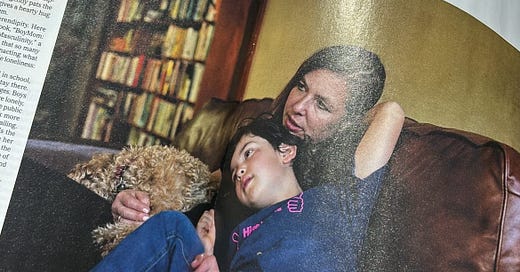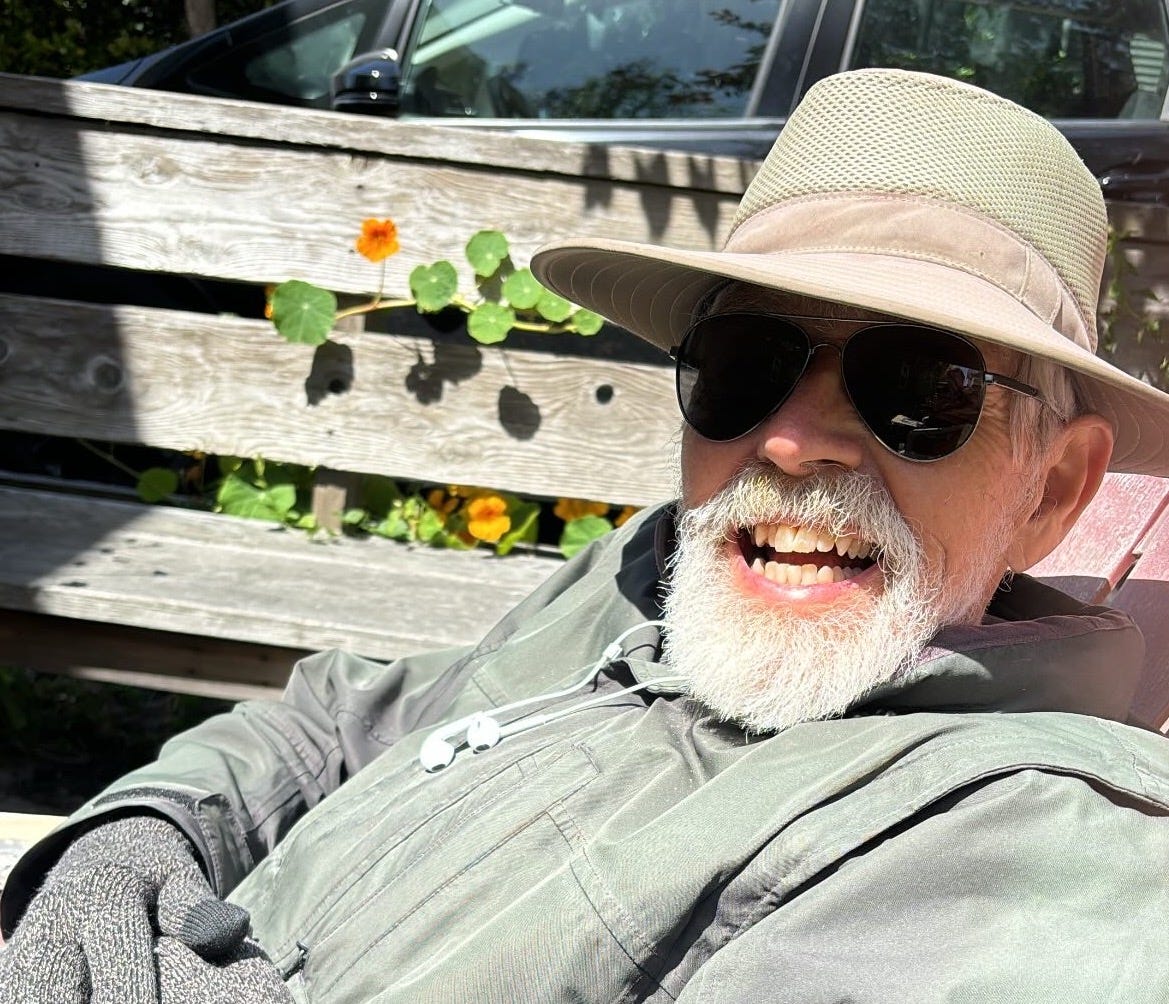I sat in the Oakland sun Sunday with my dear ol’ dad and read my new Christian Science Monitor cover story on the crisis that boys and men are facing out loud to him. He quietly listened to the whole thing, nodding his head from time to time, seemingly taking it all in.
It’s a wide-ranging piece, but the heart of it is a recognition that making sure boys and men are mentally and collectively well is not a distraction from the feminist project, it is integral to it. Yes, men still have more wealth, more bodily autonomy, and benefit more from the “pyramid scheme” that is hetero marriage, as Lyz Lenz puts it. But they also miss out on some of the most foundational parts of what makes life worth living.
Or as author Ruth Whippman puts it in in her new book, Boymom: “At some deep level, in this system, men get everything except the thing that’s most worth having – human intimacy.”
Human intimacy. What a prize, am I right?
As I spend time with my dad, transformed by dementia, I’m struck that what is left behind these days is, in part, his emotional memory. He’s lost so much that made him “manly”—his job, his cognitive capacity to sound smart and right, his protective and provider instincts. He can’t even pay a bill—has no idea how the transaction should go or what for of payment is required. But he gives me the best hugs and kisses and says, “You’re so great.” He jokes around with my mom, even maintaining an ability to recognized and express sarcasm. He absolutely glows when he sees tenderness; my youngest was feeling sick and curled up in my lap as I was reading, and you could tell he was profoundly impacted by seeing a mom comforting her kid (though he couldn’t recall the name or age of that kid).
Maybe what’s left behind after the inevitable evolution of aging—in whatever journey it comes in—is relational, which is maybe also to say, the historically feminine? If that isn’t a signal of what is most important in life, I don’t know what is.
I’d love to hear your thoughts on the piece! When they first asked me to write it, I had some resistance. I thought, “But I’m raising daughters,” and also “boys get enough attention.” But the more I read and thought about it, the more I realized how totally critical this topic is for all of us, not just the parents or educators of boys.
I even get my favorite school community in there (you guessed it, Emerson Elementary, and one of my favorite mother-son duos from our school), Dr. Charles Daniels, who founded first standalone mental health and addiction center specifically for fathers, Kimmi Berlin, a dear old friend who founded Build Up Boys, and the amazing Dr. Dena Simmons (who you might recognize from my book). It’s an embarrassment of rich perspectives and solutions.
Please add comments below and/or send feedback along to the Monitor. They love hearing from readers.






Haven’t read the piece yet, but glad you wrote it. Not just that it was written, but by you! I’ve led a garden-based empowerment club for several years called “Dirt Girls.” When we first started, a few parents of boys asked where the club for boys was. (‘Cause we need more of those?) I assured them their sons were welcome, but the boys would crinkle their noses at the idea of it. The stigma attached to being a female-bodied person. 🤦🏻♀️ A few years and one pandemic later…we have four boys in our club this spring. It’s very touching to nurture kids of any gender that want to arrange flowers, build butterfly habitats and also use pitchforks and get dirty. Intimacy with nature ranks just as high and contributes to human intimacy. 💚
Hi Courtney - Substack synchronicity...I've been writing about emotions, emotional agility and difficult conversations. I've read, and I'm saving your article 'Want to combat male loneliness? Start by helping boys connect with their emotions.' It's a powerful piece that resonates and I appreciate how you've incorporated diverse perspectives, ethnicities and initiatives within it.
I won't go into my opinion of how this plays out in our Asian-Chinese culture - others have more experience than me, & who can do so in greater depth- except to say there are a lot of cultural expectations that compound what you've described.
I appreciate that this is not an easy topic, and it requires us all to unlearn and relearn beliefs, self-awareness, and communication skills.
If you get the chance, take a look at the article I published today on 'How do we construct emotions?'
My dad who had vascular dementia loved to sit out in the sun, with his hat and gloves too (we live in the UK so that's nearly all year round ;-) )So I loved that photo!